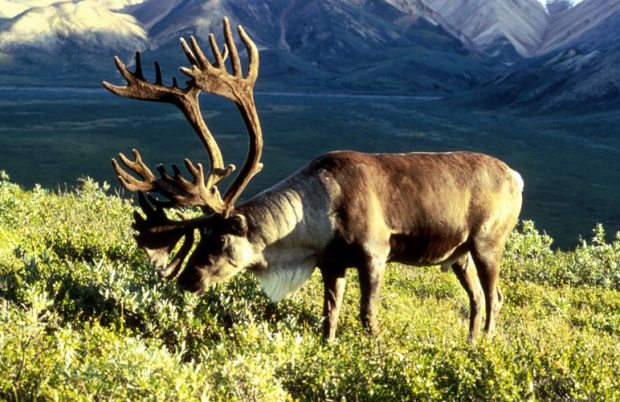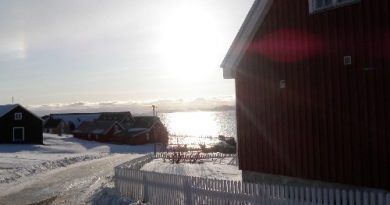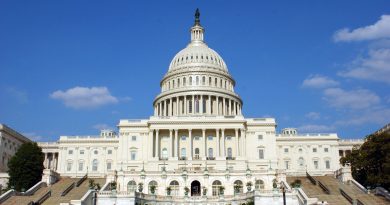Commentary: Why close a swath of Alaska if outsiders seldom hunt there anyway?

What sounds like a controversial ban that would prevent most Alaskans, not to mention all other Americans, from hunting caribou on federal lands in much of Southwest Alaska will be the subject of a public hearing in Bethel on Wednesday, despite the reality that ban would affect almost no one. Why then bother with federal action to formally close a vast swath of the state to non-local hunters?
Because, according to Andrea Medeiros of the U.S. Fish and Wildlife Service, “it was submitted and they (the Federal Subsistence Board) must give it consideration and respond to the proponent.”
Welcome to the tangled world of wildlife management and politics in Alaska, where appearances sometimes matter far more than reality. Here’s the rest of the story:
Crashing caribou herd
The Mulchatna caribou herd exploded across Southwest Alaska in the 1980s and 1990s. By 1996, there were about 200,000 of the animals. Hunters came from across the state and the world to join local hunters in trying to kill them.
They couldn’t kill enough. The oversized herd fell victim to overcrowding and disease — something of a norm in wild ungulate populations — and crashed. Hunters from afar stopped coming, but the herd size kept going down.
There are now about 30,000 Mulchatna caribou. Because of the small size of the herd, the state has banned hunting by non-resident hunters and limited state hunters to killing to one caribou each fall.
Because the caribou inhabit a remote area, because it can cost a couple thousands dollars to fly out to hunt then, and because the odds of success are not all that great, the animals are not much hunted.
State Wildlife Biologist Bruce Dale said Alaska hunters from outside the Mulchatna area kill only 60 to 70 per year.
But Mulchatna caribou are more than animals Alaskans hunt. They are also — as with much of the state’s wildlife — animals with which Alaskans play politics.
Fighting over state wildlife for decades
Enter the Bethel-based Alaska Association of Village Council Presidents. It exists to make sure the interests of a couple dozen villages in Southwest Alaska are protected in all things government. It is thus important for the AVCP to look like it is doing something.
It has done something this time by filing a “Federal Special Emergency Action Request” to close the range of the Mulchatna herd to “non-federally qualified hunters.” Federally qualified hunters are those living in rural areas.
Alaska has a wildlife management system unlike that in any other state in the nation. There is a state subsistence law to grant a priority to wildlife to Alaskans who hunt for food, and then there is a federal subsistence law to give another priority to rural Alaskans, as opposed to city Alaskans, who hunt wildlife for food.
Alaskans, who like to refer to these priorities as “rights,” have been fighting for decades over just who should get what hunting priorities. The AVCP’s interest is in protecting the rural priority of its members, or appearing to do so.
Its request for a hunting closure makes much of an unsubstantiated claim that the herd size is now so small that its genetic diversity is threatened and thus it “certainly cannot support the harvest of large, breeder bulls.”
“Large, breeder bulls” is code for “trophy bulls” in a part of the state where trophy hunters’ are largely vilified. They are seen as rich, guide-hiring dudes from the city who don’t need to hunt and should stay home.
They are already doing that, however, so there really is no need to write a regulation to put an end to their non-hunting.
“Non-resident seasons remain closed throughout the affected areas, so there is not really any guiding activity,” Dale said. The 60 to 70 caribou killed by Alaskans from outside the Mulchatna area are shot on state or private lands by hunters flying across Cook Inlet from the Kenai Penisula or hunting in the airplane-accessible Iliamna area.
‘Analysis in progress’
That small harvest, he added, would not be affected by anything federal officials do because of where the animals are killed. “The board will not be considering closing state lands,” Medeiros said in an e-mail. “That is not under the board’s jurisdiction.” Instead the board will meet at the headquarters of the Yukon National Wildlife Refuge in Bethel to consider closing hunting on federal lands where there is already no non-local hunting because, well, because…..
“The analysis of the request is in progress,” according to Mederios. “(And) the public hearings are part of the analysis process.” There is no telling what the federal subsistence board will do after going through all of this “process,” but there is a good possibility it will do what the AVCP has asked. Why not?
It’s not like anybody is hunting there now. “Most of the harvest — by all users and especially non-federally qualified hunters takes place away from the federal lands that are proposed to be closed,” Dale reiterated, adding that “this proposed action would not do much to reduce conflicts or competition between federally qualified users and others.”
Yet it could be portrayed to do the latter, and that would amount to a political victory for the AVCP, which claims in its request that the closure would boost the herd’s breeding success and help rebuild the herd.
Breeding success is already improving, however, thanks to state predator-control efforts. The state has been killing wolves on the caribou calving grounds. Killing wolves is not popular with national environmental groups, but Dale said, “we are seeing great calf survival, very good somatic growth, good adult survival, very good pregnancy rates and increasing bull-to-cow ratios.”
All of those are good things. But instead of just letting what appears to be working work, Alaskans appear destined for another little squabble over one of the most divisive political issues in the state because….
Well, just because.
Contact Craig Medred at craig(at)alaskadispatch.com



